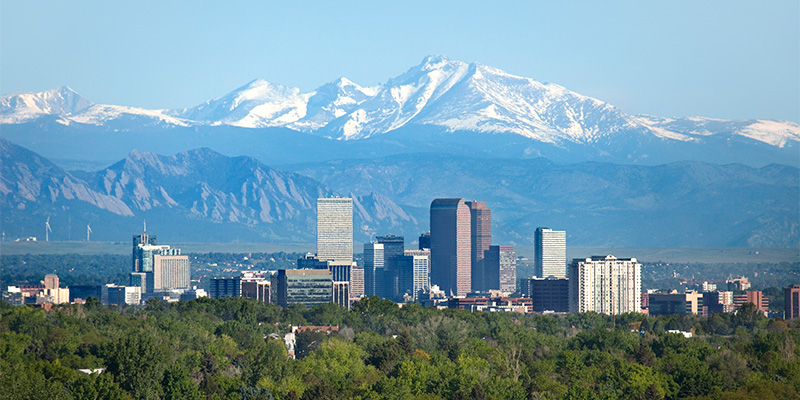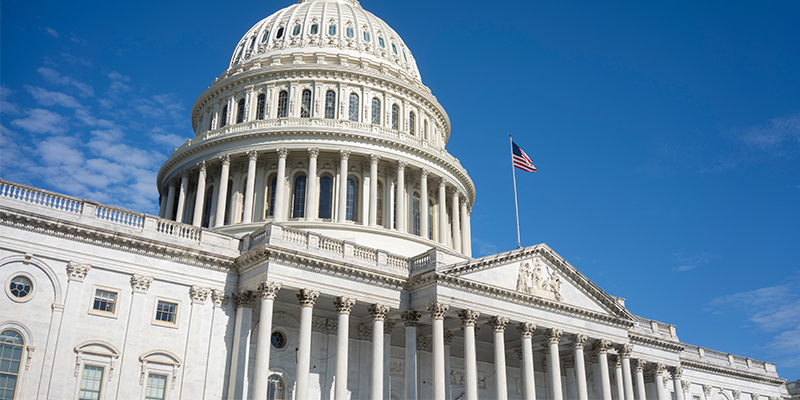On April 24, 2024, NAIOP Colorado, along with the Colorado Apartment Association, the Apartment Association of Metro Denver, and the Colorado Hotel and Lodging Association, filed a lawsuit in federal district court challenging the legality of building performance mandates found in the Energize Denver citywide program and the statewide mandates found in Regulation 28 issued by Colorado’s Air Quality Commission. The outcome of the litigation could have significant national implications, potentially blunting attempts by local jurisdictions in other states from imposing what in many cases are unrealistic mandates on building owners to reduce their energy usage as a way of mitigating greenhouse gas (GHG) emissions and forcing owners to completely “electrify” their building operations on unrealistic timeframes and at great cost.
Unlike many other local ordinances and policy initiatives designed to encourage greater energy-efficiency in the building sector (thereby reducing overall GHG emissions attributable to energy usage in buildings), the Colorado measures are focused not only on new construction but would have a pronounced impact on existing buildings and their owners. Their implementation poses significant challenges for property owners and the commercial real estate industry. NAIOP chapters try to work in concert with their state and local governments to advance reasonable policies that further the goal of increased energy efficiency in commercial real estate, as well as measures that would reduce GHG emissions. In this case, unfortunately, the input and recommendations of the commercial real estate community went largely unheeded.
Approved by Denver’s City Council in 2021, the Energize Denver program aims to reduce greenhouse gas emissions (GHGs) 100% from buildings over 25,000 square feet by 2040, affecting approximately 3,000 buildings. Regulation 28, titled “Building Benchmarking and Performance Standards”, requires certain building owners to meet energy use and greenhouse reduction targets as part of Colorado’s plan to reduce greenhouse gas emissions by 50% by 2030. These “covered buildings” under Regulation 28 include any multifamily residential or commercial building of over 50,000 square feet. Not affected by the regulation are stand-alone parking facilities, storage facilities, or buildings where more than half the floor area is used for industrial, manufacturing or agriculture purposes. Single-family homes, duplexes and triplexes are also excluded.
Under Regulation 28, covered building owners must report benchmarking data for the previous calendar year to the Colorado Energy Office, along with a payment of $100 per building, and, pursuant to the statute that led to Regulation 28, specify steps the owner will take to reduce GHG emissions by 7% to meet Colorado’s 2026 target reduction goals. In 2028, an owner of a covered building must provide a plan to reduce GHG emissions by 20% by 2030.
Beginning June 1, 2024, failure to submit benchmarking reports will result in fines of up to $500 for the first violation and $2,000 for subsequent violations. Failure to meet the building performance standards will result in a penalty of up to $2,000 for the first violation and $5,000 for each subsequent violation. Each month that an owner fails to meet the standards is an independent violation subject to the $5,000 fine.
The unrealistic time frames imposed by Regulation 28, and the resulting fines for violations which can quickly accumulate, have raised alarm bells among commercial real estate professionals and many others who fear the economic impact on local economies. Compliance with the stringent requirements mandated in the regulation can entail significant upfront costs for building upgrades, retrofits and technology investments. In order to meet the mandated reductions required to reach the 2030 goals, owners of existing buildings would have to get rid of their natural gas heating systems in favor of furnaces and hot water heaters that run on electricity – effectively acting as a ban on natural gas. Replacing those systems and retrofitting apartment buildings would come at an enormous expense.
As the coalition, which filed the suit, stated in a letter to Denver Mayor Michael Johnston, the Colorado measures would essentially “require ‘electrification’ of thousands of buildings at tremendous expense and disruption, costing hundreds of millions of dollars, and displacing tens of thousands of tenants over the several years such retro fits can consume . . . [a]dded to this are the significant uncertainties about the ability of Colorado’s electrical grid to deliver increased power consistently and reliably to all these newly electrified buildings on the unreasonable schedules mandated by these rules.”
A central argument of the lawsuit is that both programs are preempted by provisions of the federal Energy Policy and Conservation Act, which essentially requires neutrality as to the source of energy. By essentially serving as a ban on natural gas usage in buildings, the Colorado and city of Denver measures run afoul of the law, according to the filed complaint. This approach succeeded in overturning a natural gas ban imposed by the city of Berkeley, California. If the preemption argument is successful in the Colorado case, then other jurisdictions will need to closely watch how they draft similar ordinances to ensure compliance with federal statutes.
In a joint statement, NAIOP and the other plaintiffs made clear that “energy efficiency and transitioning to cleaner sources of energy are key parts of a sustainable real estate sector that benefits all Coloradans” but that strategies to achieve these goals “must be executed in concert with other Colorado priorities, including growing the availability of attainable housing and strengthening Colorado’s ability to provide good-paying jobs for its citizens.”
NAIOP’s members and local chapters understand that they want to be part of the solution when it comes to reducing energy usage and GHG emissions attributable to the commercial building sector. Despite working in good faith with local leaders, the substantive input of the Colorado real estate industry was not taken into account in a meaningful way. Depending on the outcome of the lawsuit against Energize Denver and Colorado’s Regulation 28, jurisdictions in other states looking to pass similar measures may be more responsive to the industry’s concerns and recommendations.








